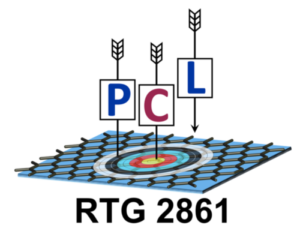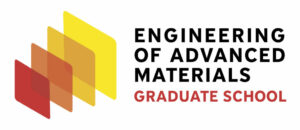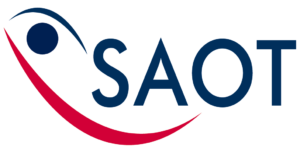The early-career researchers in LMQ are supported by various programmes run at FAU, listed in the following.
Structured doctoral programmes

The integrated Research Training Group (RTG) is an important substructure of the Collaborative Research Centre Transregio (TRR 306) QuCoLiMa. The RTG aims to establish the field of quantum cooperativity of light and matter for the next generation of researchers at the national and international level and to foster intensive and lasting links between the young members of the TRR.
The RTG targets are the embedding of the young scientists into a world-class research environment at the participating institutions; offering young scientists the chance to develop under a structured graduate programme within a motivated group of doctoral researchers and experienced PLs; fostering of a high degree of scientific independence of the young researchers, which is essential for the most productive development of the next generation in the research field of the TRR 306.
For more information, see the official website.

The Research Training Group RTG-2861-PCL is a collaboration between FAU and Technische Universität Dresden (TUD), and is funded by Deutsche Forschungsgemeinschaft. The goal of the RTG is to achieve atomic-precision synthesis and exploration of new planar carbon lattices (PCLs) for next-generation quantum materials, functional precision membranes, optoelectronic and electrochemical devices, by employing advanced experimental and theoretical methods in an interdisciplinary approach bridging synthetic chemistry, condensed-matter physics, and materials science.
For more information, see the official website.

Starting as interdisciplinary program for doctoral researchers, the Graduate School Advanced Materials and Processes (GS AMP) has been established within the frame of the Cluster of Excellence Engineering of Advanced Materials in 2009. During the past decade, GS AMP offered a unique program for doctoral candidates working on topics related to the EAM mission.
With the establishment of the competence unit Engineering of Advanced Materials GS AMP was redifined as GS EAM. The GS EAM continues to offer students additional interdisciplinary possibilities to achieve an excellent doctoral graduation.
For more information, see the official website.

The Erlangen Graduate School in Advanced Optical Technologies (SAOT) acts as an interdisciplinary hub for research on photonics and optical technologies in Erlangen. SAOT provides an Education Program of Excellence for national and international doctoral candidates, including Workshops, Seminars, and Academies. Furthermore, SAOT increases the Scientific Outreach to the general public and coordinates Joint Applications on research funding in the fields of photonics and optical technologies.
For more information, see the official website.
